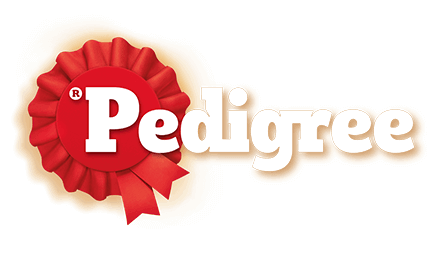Find products that match your dog’s needs

The most common causes of a dog’s bad breath are oral health issues. Although there isn’t any evidence that suggests certain dog breeds are more susceptible to halitosis; there are some specific dog breeds, such as toy breeds that have higher chances of suffering from gum diseases. This thereby increases the chances of them having dog bad breath issues. Persistent dog breath smells increase their chances of having an underlying health concern.
Read the following to know more about the causes of bad dog breath and how to remove bad breath from dogs.
Persistent bad breath in dogs can be due to several health issues. Some causes of dog bad breath include:
Bad breath alongside inflammation and redness of the gums are symptoms of gum disease. It can result from tartar build-up leading to tooth decay or even tooth loss. Too much plaque and tartar can move the gums away from the teeth, allowing bacteria to grow in new places. Plus, if your pup is not a chewer and you don’t get its teeth cleaned regularly, then plaque accumulation can result in your dog having bad breath. Hence, regularly check your dog’s mouth for signs of gum disease and try to establish a daily oral care regime at home.
If dog’s breath smells like ammonia, it may be suffering from a kidney disease. This happens when your pup’s kidneys aren't operating properly to filter and digest waste materials and toxins. The buildup in their body could be contributing to a terrible breath odour as well as causing health problems to your canine friend. Other than dog’s bad breath, urine odour is another symptom of underlying kidney disease. Kidney disease is a dangerous condition that needs immediate healthcare assistance. Hence, these symptoms prompt you to consult a veterinarian at the earliest.
This is noticeable when dog breath smells sickly sweet and fruity due to ketones building up in its bloodstream. This sweet, fruity breath is a key symptom of diabetes. Frequent drinking and urination are other signs of diabetes that you should look out for. If you notice these signs in your pet, please consult a veterinarian to get your dog’s health evaluated.
Another prominent reason for dog bad breath is improper liver functions. Foul breath, constant vomiting, repulsion towards food, lack of appetite and a yellow tint in the gums are some signs that hint towards liver conditions in dogs. Liver disorders are serious health hazards. Therefore, you should immediately take your dog to the nearest vet or emergency care to get them diagnosed and treated.
Dogs poor eating habits can sometimes directly result in foul breath. If your dog has regular access to garbage or decomposing animal remains, its foul breath could be the consequence of unsupervised eating. Dogs seem to love cat feces in general and having cats in the house can make it difficult for your dog to refuse. This unhygienic habit is both smelly and unsanitary for the pet and the caregiver. Besides, there is also a disorder called coprophagia that compels some dogs to consume their own or other dogs' feces. Therefore, unsanitary eating habits can result in bad breath.
Once the dog’s bad breath reason is identified, you can begin treating it. But before you start the treatment, it is necessary to understand the importance of oral hygiene for dogs.
The source of poor breath in dogs must be addressed, and luckily there are several treatment options available.
If your dog's foul breath is caused by plaque, tartar, or periodontal disease, the best thing you can do is make an appointment with your vet to check if your dog is suitable for a dental cleaning. Your veterinarian will do blood tests to ensure that your dog is healthy enough to undergo anaesthesia. Moreover, this appointment is a good time to rule out any other possible explanations for your dog's bad breath. Depending on the extent of the periodontal disease, your vet may have to extract loose or damaged teeth during the cleaning.
Covering the waste and limiting your dog's access to undesirable outside finds, such as roadkill, will eliminate the problem of unattended munching. Unless the cats are also pooping outside, placing the litter box out of your dog’s reach is a simple remedy that prevents cat feces intake, and cleaning up right away after your dog poops can help stop coprophagia.
Diabetes as well as liver and kidney diseases are severe conditions that necessitate veterinary care. Your dog's bad breath should go away after the underlying issue is remedied.
If your dog’s breath smells due to a dental issue such as gum disease, try any of the following tips as treatment or prevention:
Feeding guideline: Dog treats like the PEDIGREE® Dentastix™ are good for oral hygiene, however, they must not be used in place of a regular dental care routine. Brush your dog’s teeth once a day to keep its teeth and gums healthy. Make sure you use dog-specific toothpaste.
To prevent bad breath in dogs, it’s essential to be proactive about your dog’s dental health and to look into their mouth regularly. Establish a daily oral care regime at home and schedule regular visits to the vet.
You can freshen your dog's breath by adding half a teaspoon of raw organic apple cider vinegar to its water bowl. Adding a probiotic made exclusively for dogs to your pooch’s daily meal will help balance healthy dental bacteria and keep its breath smelling fresh.
Just like humans, it is best to brush your dog’s teeth twice a day. In fact, many dogs will begin to enjoy brushing once it becomes a part of their regular routine. Brushing three times a week is the bare minimum for removing plaque and preventing tartar buildup.
Plaque forms on your dog’s teeth without regular cleaning. This can cause dog breath in dogs, gingivitis, periodontal disease, and tooth loss in extreme cases.
Yes! PEDIGREE® Dentastix™ is extremely safe for your dog. They are also low in fat and sugar. This means they are a healthy treat and a crucial part of Dog Healthcare for keeping your dog's teeth clean and strong.

Find a PEDIGREE® stockist
near you!
Buy online
Click to buy from any of the retailers below

